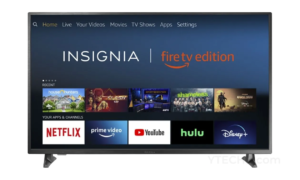
In the digital era, with smartphones at the centre of our daily lives, there’s no denying the immense potential of mobile apps. Especially when it comes to shopping. From groceries to gadgets, consumers love the convenience of browsing and buying with just a few taps. If you’re looking to capitalise on this trend, then creating a shopping app is a fantastic venture. Contact today at App Development Agency London.
1. Define Your Vision
Niche Selection: Before you dive into development, it’s crucial to identify your niche. Are you looking to create a general eCommerce platform or a specialised store? Your choice will dictate the app’s features, design, and marketing strategies.
Know Your Audience: Understanding your target audience’s needs and preferences is paramount. Conduct surveys, or engage with potential users to gather insights. This will help you create an app that genuinely addresses their requirements.
2. Decide on the App Features
User Profiles: Allow users to create profiles with saved addresses, preferences, and order history.
Search & Filter Options: A robust search function with filters ensures users find what they’re looking for quickly.
Secure Payment Gateway: Ensuring a safe and secure transaction process will build trust among your users.
Reviews & Ratings: Allow users to leave reviews and rate products. This not only builds trust but also helps other customers make informed decisions.
3. Choose the Right Technology Stack
The success of your shopping app also depends on its performance, security, and scalability. Hence, choosing the right technology stack is essential. Collaborating with an experienced app development agency in London will provide you with the technical expertise and insights to make informed decisions.
4. Design a User-friendly Interface
A sleek, intuitive design can set your app apart. Consider the following:
Consistency: Maintain uniformity in colours, fonts, and layouts throughout the app.
Responsiveness: Ensure your app looks and functions well on devices of all sizes.
Easy Navigation: Users should be able to effortlessly browse through products, categories, and other features.
5. Development & Testing
Choose a Development Method: There are multiple ways to develop an app, such as native, hybrid, or web-based. Each has its pros and cons. An app development agency can guide you in selecting the best method suited for your needs.
Testing is Key: Before the official launch, rigorously test your app for bugs, errors, and usability issues. Ensure that it functions properly on all platforms and gadgets.
6. Marketing & Launch
Pre-launch Campaign: Build buzz around your app with teaser campaigns, advertisements, and influencer partnerships.
Optimise for App Stores: App store optimisation ensures your app is discoverable to potential users.
Collect Feedback: After the launch, gather user feedback to make necessary tweaks and enhancements.
7. Partner with a Reputed App Development Agency in London
While there are many DIY app-building tools available, if you’re serious about creating a professional and successful shopping app, consider partnering with a reputable app development agency in London. They can provide you with the expertise, insights, and resources required to navigate this complex process. Moreover, their local knowledge can be instrumental in understanding the UK market and ensuring your app caters to its nuances.
8. Post-Launch Strategies
The adventure continues after your app is live. In fact, it’s just beginning. Here’s what you should focus on post-launch:
User Engagement: Regularly update your app with new features, products, or deals to keep your users engaged. Push notifications can be a great way to alert users about sales or new arrivals.
Maintenance: Technology evolves, and so do user expectations. Regular maintenance ensures that your app remains compatible with the latest OS updates and continues to deliver a glitch-free experience.
Analytics: Use tools to track user behaviour on your app. Understanding which features are most loved (or ignored) can give you insights on where to improve.
9. Seek Customer Feedback Continuously
Feedback isn’t just for the initial stages. It’s a continuous process.
Reviews & Surveys: Prompt users for reviews and conduct periodic surveys to understand their pain points or wishlist features.
Implement Feedback: Show your users that you value their feedback by implementing their suggestions. This not only enhances user satisfaction but also builds brand loyalty.
10. Diversify and Expand
Once your shopping app starts gaining traction, think about diversifying:
Global Expansion: If your app is doing well in the UK market, consider adapting it for international audiences.
Integrate Augmented Reality: Augmented Reality (AR) allows users to ‘try on’ products or see how they’d look in their space, providing an enhanced shopping experience.
Loyalty Programs: Introduce referral schemes or loyalty points to reward your regular customers.
11. Staying Updated with Market Trends
The app development world is always evolving. By keeping an eye on trends, especially in shopping apps, you can stay ahead of the competition:
Attend Workshops: Join workshops or seminars related to app development. Cities like London often host numerous tech events.
Collaborate with Experts: Regularly consult with your app development agency in London to understand the changing landscapes of the tech world and how they can be integrated into your app.
12. Ensuring Security
With rising cyber threats, ensuring the security of your users’ data is crucial:
Regular Security Audits: Conduct periodic security checks to identify vulnerabilities.
Update Security Protocols: Based on the audit results, enhance your security protocols to protect user data.
Conclusion: The Road Ahead
In the fast-paced world of digital shopping, creating an app is only the first step. Constant innovation, adaptability, and user-centric strategies are crucial for sustained success. By following this comprehensive guide and aligning yourself with a knowledgeable Mobile App Development Agency London, you’re not just building an app, but a lasting digital shopping experience.





